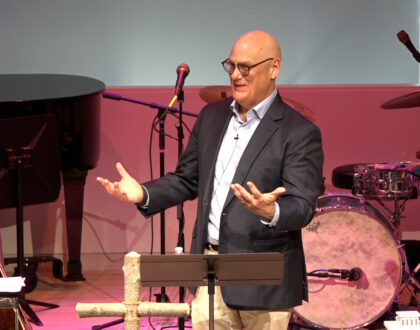7 Key Challenges for 21st Century Christianity

I recently gave a talk about the church of the future. This is a subject that I think about often and it’s on the mind of many church leaders.
Within mainline Christianity, denominational decline and statistics are depressing. Many churches are aging and struggling to reach younger generations. However, some churches are thriving and bucking the trend. What have these churches discovered that needs to be shared? I’d like to identify seven key challenges that represent opportunities for growth and change.
First: Authenticity matters.
Younger generations can sniff out phoniness and superficiality. There has been too much, “Do as I say, not as I do.” Churches and church leaders must be honest and transparent about their own flaws and shortcomings. I recently heard a seminary graduate say that the church is at its best when it is honest about its shortcomings. Pride can affect any institution because it is comprised of human beings.
Second: Experiencing God is much more important than knowing about God.
Harvard theologian Harvey Cox says that we are now in the “Age of the Spirit.” Beliefs, orthodoxy and creeds don’t really matter if you don’t experience the presence and grace of God in your own life. Christ can challenge and change any of us at any stage of life.
Third: Mission, outreach and empathy is essential.
Millennials want to know that the church is willing and ready to serve in the community and make a difference. This means getting outside the walls of the church. Too many churches are insulated and self-focused. Christ calls us to missional living out in the world. There is a lot of hurt, pain, and poverty that needs to be addressed locally and globally.
Fourth: Those who intentionally create conflict and discord in the Christian community need to be confronted.
Churches have always been slow to do this. Certain people create drama and conflict, and they need to be called out. Allowing bad behavior to persist only does damage to the heath of a community.
Fifth: Hot social issues must go unresolved.
At this point, we should recognize with integrity that there will not be unanimity on certain social topics. This is not selling out or abandoning scripture. Energy spent fighting over these things has done significant collateral damage and would be better channeled into love, service and compassion. Christians must learn to set an example on how to have civil dialogue on tough issues knowing that there will always be disagreement. Christianity needs more unity and less polarization.
Sixth: Judgment must give way to grace.
The church should be a place where everybody is welcome because nobody is perfect. We all sin and have our flaws. It’s difficult for people to begin healing and rebuilding their lives if they feel judged and excluded. Many going through a divorce often stay away from the church when the church should be the first place that helps them recover and get life back on track. Judgment only makes pain worse. Jesus said not to judge.
Seventh: Small groups should not be optional.
Of course, churches cannot mandate this, but small groups (and Sunday School classes) are where growth, formation and relationships happen. Nobody can be a Christian in isolation. It is a religion that happens in community. Love God, love neighbor. We find strength and encouragement from others who are dealing with the same problems and challenges in life. Loneliness is becoming a clear challenge in the digital age. Many wonder if they have any friends. When small groups are done well, this void is filled. Each of these challenges, if taken seriously, will allow Christianity to thrive for generations to come.
Recommended Posts

Loving God, Loving Nashville
April 24, 2024

Authenticity in a Social Media World
April 16, 2024

“Leveraging Our Love” – Jay Hutchens – April 14, 2024
April 14, 2024

